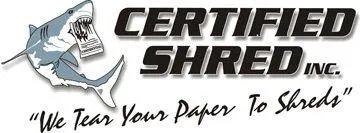Blog

Staying Compliant with Utah Laws for Record Retention and Secure Disposal
Introduction
Every business in Utah generates records—employee files, tax documents, customer contracts, financial statements. But keeping records forever isn’t just inefficient, it can be a liability. State and federal laws require companies to retain certain records for specific periods of time and securely dispose of them afterward.
This guide will help Utah businesses understand record retention laws, best practices for secure disposal, and practical steps for staying compliant.
Understanding Utah Record Retention & Secure Disposal Laws
Why Record Retention Rules Exist
Record retention laws ensure that important documents are available for audits, lawsuits, or regulatory investigations. They also prevent businesses from holding sensitive information longer than necessary, which reduces risk in case of a data breach.
Key Regulations Utah Businesses Should Know
While Utah does not have a single, universal record retention statute for all business records, companies must follow a combination of:
Utah’s Protection of Personal Information Act – Requires businesses to protect and properly dispose of personal data.
Federal Regulations – HIPAA for healthcare, GLBA for financial institutions, IRS requirements for tax records, and employment laws that specify retention timelines.
Industry Guidelines – Many professional associations publish recommended retention periods for client files, contracts, and operational records.
Secure Disposal Requirements
Once a record has met its retention period, Utah law requires businesses to take “reasonable measures” to protect personal information during disposal. This typically means shredding, pulverizing, or otherwise rendering the data unreadable.
How to Stay Compliant
Here’s a step-by-step framework to keep your business compliant:
Create a Record Retention Policy
Document how long different types of records must be kept. Categorize by type (financial, HR, client, medical, operational).Train Employees on the Policy
Ensure staff understand which documents should be kept, which should be destroyed, and when destruction should occur.Schedule Regular Reviews
Periodically review your stored records to identify what is eligible for disposal. This keeps storage areas organized and reduces risk.Use Secure Collection Containers
Place locked bins in your office for documents ready for destruction. This prevents sensitive papers from ending up in open trash.Work with a Certified Shredding Provider
Partner with a shredding company that offers chain-of-custody protocols, Certificates of Destruction, and compliance with NAID AAA or similar standards.Keep Documentation of Destruction
Maintain logs or certificates showing what was destroyed and when. This provides proof of compliance in case of an audit.Include Digital Records
Don’t forget electronic data. Implement secure hard drive shredding or wiping procedures when decommissioning devices.
Frequently Asked Questions
How long should I keep employee records in Utah?
Most personnel records should be kept for at least three years after termination. Payroll records generally require retention for four years under federal law.
Do I need to shred customer information?
Yes. If documents contain personal information (names, addresses, financial data), Utah law requires that they be rendered unreadable before disposal.
Can I just throw old files in the recycling bin?
No. Recycling without shredding does not meet secure disposal requirements. Always shred before recycling.
What about electronic records?
Electronic files must be securely deleted or drives physically destroyed so that data cannot be reconstructed.
Who enforces these requirements?
Enforcement can come from state agencies, federal regulators, or even through civil lawsuits if mishandling of data leads to harm.
Conclusion
Compliance with record retention and secure disposal laws is not just about avoiding fines—it’s about protecting your customers, employees, and reputation. By setting clear retention policies, training staff, and working with a professional shredding provider, Utah businesses can reduce risk and stay on the right side of the law.

© 2025 Certified Shred
Contact Information
Phone: 801-972-4748
Email: [email protected]
Address: 537 Pickett Circle Suite 600 Salt Lake City UT 84115
Business Hours:
Mon - Thu: 8:00 am-3:00 pm
Friday: 8:00 am - 1:00 pm
Sat - Sun: Closed
Service Areas
© All Rights Reserved • Grease Guys | Terms of Use | Privacy Policy